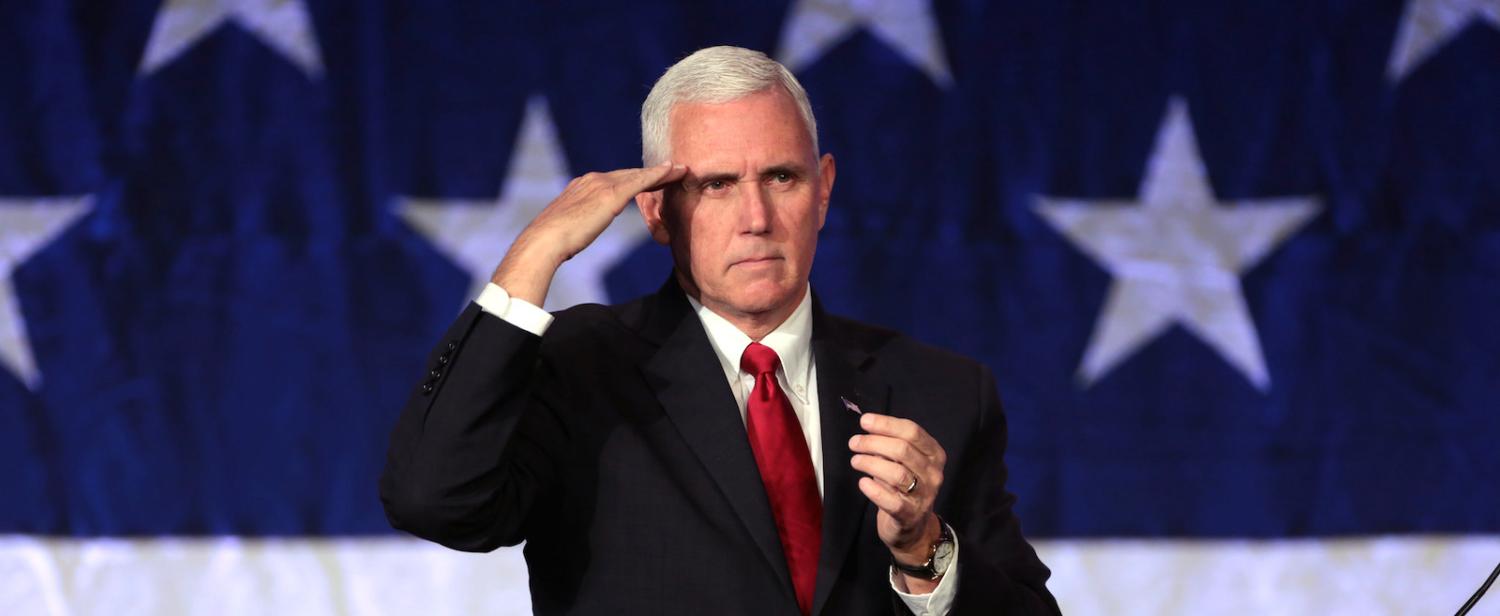US Vice President Mike Pence blusterous speech on Washington’s policy towards China earlier this month is still causing a swirl. Iain Henry:
Some Australian commentators seem to welcome this approach, but official Australian comments since the speech don’t seem to be resounding endorsements. To borrow some Cold War terminology, Pence seems to be advocating rollback, rather than containment. This could unsettle US allies – even those hoping for a change in China policy.
As part of this new competitive strategy, the US Senate this month passed legislation which created a new International Development Finance Corporation. Cornelia Tremann:
Considering that the Trump administration’s 2017 budget proposal included provisions to slash foreign aid funding and gut the OPIC, the IDFC was stood up in a whirlwind process of bills and position papers, and quickly garnered support across the US political spectrum. The immediate reason for this turnaround can be summed up in one word: China.
Greg Earl on Vietnam’s dual foreign policy dilemmas:
Even the most rudimentary maps in Vietnam seem to contain the Paracel and Spratly Islands, serving to emphasise the country’s territorial tensions with China. But it also demonstrates its exposure to water and weather challenges as a sliver of land with 95 million people squeezed between the Mekong River and the South China Sea. During a weeklong tour in Vietnam to examine new Australian connections, two matters keep re-emerging in conversation: how to deal with China and a range of climate related issues.
And Hunter Marston writes on Vietnamese political blogger Mother Mushroom’s release and exile to the US:
The timing of her release during Mattis’ visit was likely meant both to reduce media attention on the story while signalling to the US that Hanoi was willing to show flexibility to Washington’s human rights concerns.
In contrast to Australia and the US, Ottawa recently decided not to ban equipment from Chinese technology firm Huawei from Canada’s 5G network. Kim Nossal:
The Huawei decision thus had a number of important political purposes. First, taking a stance in sharp opposition to the US (which has, like Australia, banned Huawei and other Chinese telecommunications firms from involvement in 5G networks) allowed Trudeau to paint his government as both willing and able to stand up to Trump, who is widely despised in Canada for a variety of reasons, including his ad hominem attacks on both Trudeau himself and Chrystia Freeland, Canada’s foreign minister.
Russian President Vladimir Putin was recently in India to sign off on cooperation in oil and gas projects in Russia’s Arctic shelf and the sale of natural gas. Stephen Blank:
These sales confirm to all observers that India continues to act as an independent, unattached major power even if its ties to the US continue to grow in scale and scope.
Alex Davis, Ruth Gamble, Gerald Roche and Lauren Gawne on the growing geopolitical tensions in the Himalaya:
Environmental degradation poses an even greater threat to the region’s geopolitical status-quo. It constitutes the headwaters of most of Asia’s major rivers, including the Indus, Ganges, Brahmaputra, Salween, Mekong, and Yangtze. The ice-pack that clings to this ‘third pole’ not only feeds these and other rivers but also moderates the monsoon rains that provide the other primary source of freshwater for drinking, agriculture, and manufacturing to South, East, and Southeast Asia.
To avoid entanglements in the International Court of Justice, the US has promised to withdraw from the 1955 US-Iran Treaty of Amity, Economic Relations, and Consular Rights. Firouzeh Khoshnoudiparast:
The decision to walk away from the treaty and broader dispute resolution does carry a cost. American diplomats could find themselves at a disadvantage in international settings if other countries take action to balance the scales and fill the US void in the international courts such as the ICJ.
The Maldives’ recent election saw opposition candidate Ibrahim Mohamed Solid unexpectedly defeat the heavy favourite, president Abdulla Yameen. Aarti Betigeri:
The potential for the leadership change is massive: not only is Solih’s win being hailed as a win for democracy, it could alter the pace and amount of Chinese investment in the Maldives, and shift the power balance between China and India in the Indian Ocean. For a nation with little economic clout, the Maldives’ geopolitical position has, of late, made it more important than ever.
Christian Downie on Australian energy diplomacy:
To the extent that Australian energy diplomacy shifts away from a narrow self-interested focus on export promotion, to improving global energy governance in ways that allow major powers to cooperate on critical issues, such as the rules governing oil markets, or subsidies for fossil fuels, it is also likely to ease rivalries and reduce potential conflict.
Australia has seen a renewed debate on moving children in detention in Nauru to New Zealand. Jane McAdam:
The political bargaining going on about a lifetime ban on travel to Australia for refugees resettled from Nauru in New Zealand is mean and unnecessary. It discriminates against different cohorts of refugees, contrary to international law, and may also infringe upon families’ right to be together.
Finally, read Gretta Nabbs-Keller’s two articles on the law and politics behind Indonesia’s revised anti-terror law in the wake of the May family suicide bombings.
The appeal of global Islamist ideology has radicalised young Indonesians via social media, without the need for travel or formal membership of Islamist organisations.
